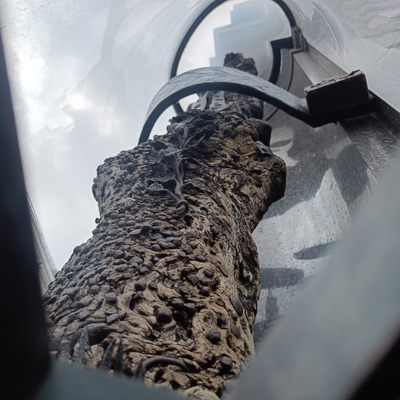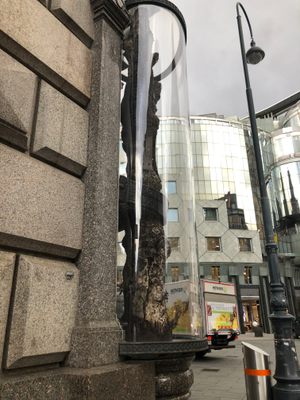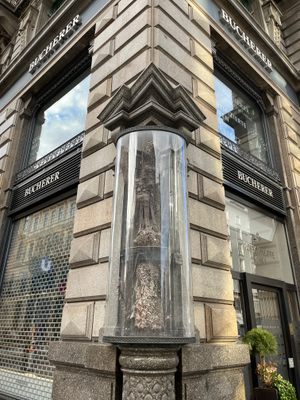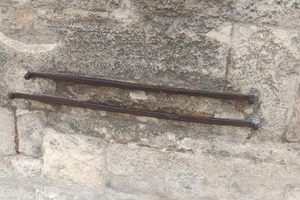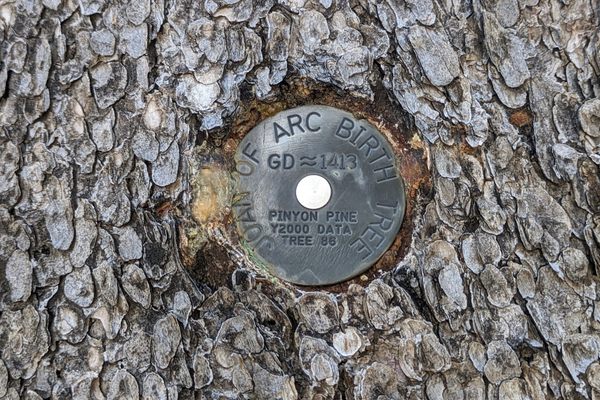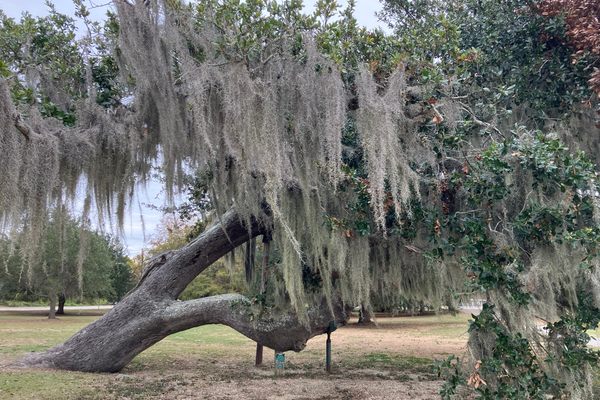About
Once thought to have been the last tree standing in an ancient forest, or the work of Satan himself, hundreds of nails have been driven into the wood of this ancient tree trunk for reasons unknown.
"Stock-im-Eisen" means "staff in iron" in German, and is the oldest known example of the tradition.
These types of Nagelbaum or "nail trees" were common throughout southeastern Europe in the middle ages. The reasons behind them are not totally clear. It is thought that the practice of sacrificing what would have at the time a fairly valuable item, nails, was done as an act of thanks or in hopes of good luck. The nails trees of Europe inspired a similar practice during WWI of creating patriotic "Nail Men" as fundraising projects and acts of national pride.
Research in the 1970s dated the spruce tree approx 1400, with the first nails driven in while it was still alive. It was cut down around 40 years later. The section now on display is about 7 feet tall, and is accompanied by decorative panels illustrating the history of the nagelbaum.
On display since at least 1548, the tree is now located safely behind glass on a corner of the magnificent Palais Equitable at the corner of the Graben and Karntner Strasse in Vienna.
Related Tags
Community Contributors
Added By
Published
January 12, 2014




